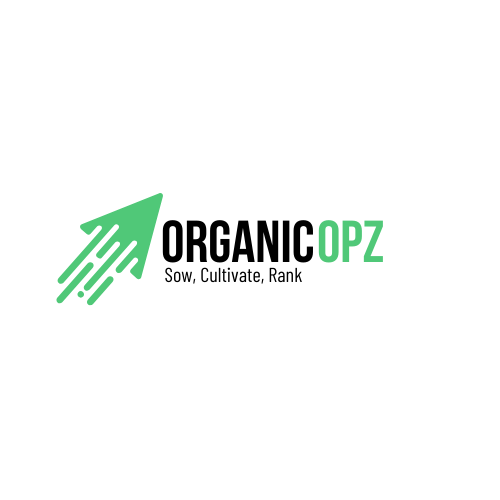Organic Marketing for Nonprofits: Strategies for Success
 OrganicOpz
OrganicOpzOrganic marketing for nonprofits is essential for building a strong, engaged community without breaking the bank. With limited budgets, nonprofits must leverage organic marketing strategies to maximize reach and impact. Here are some proven strategies for success.
Understanding Organic Marketing
Organic marketing refers to the use of natural, unpaid methods to promote your nonprofit and its mission. This includes content marketing, social media engagement, SEO, and more. Unlike paid advertising, organic marketing builds long-term relationships and trust with your audience.
Crafting Compelling Content
Content is king, even in the nonprofit sector. Creating high-quality, engaging content that resonates with your audience is crucial. Blog posts, infographics, videos, and podcasts are excellent ways to share your story and mission. Ensure your content is unique, informative, and addresses the interests and needs of your audience.
Key Tips for Content Creation
Tell Stories: Share impactful stories about the people and communities you serve. Stories evoke emotions and create a deeper connection with your audience.
Educational Content: Provide valuable information related to your cause. This positions your nonprofit as a knowledgeable and trustworthy source.
Visual Content: Use images, infographics, and videos to make your content more engaging and shareable.
Leveraging Social Media
Social media platforms are powerful tools for organic marketing. They allow nonprofits to reach a wider audience and engage with supporters in real time.
Effective Social Media Strategies
Consistency: Post regularly to keep your audience engaged. Use a content calendar to plan and schedule posts.
Engagement: Respond to comments and messages promptly. Engage with your followers by asking questions and encouraging discussions.
Hashtags: Use relevant hashtags to increase the visibility of your posts. Research popular hashtags related to your cause.
Optimizing for SEO
Search engine optimization (SEO) is vital for driving organic traffic to your nonprofit's website. By optimizing your website and content for search engines, you can improve your visibility and attract more visitors.
SEO Best Practices
Keyword Research: Identify keywords related to your cause and incorporate them naturally into your content. Aim for a keyword density of 1-2%.
On-Page SEO: Optimize your titles, meta descriptions, and headers with relevant keywords. Ensure your website is mobile-friendly and loads quickly.
Quality Backlinks: Earn backlinks from reputable websites to boost your search engine rankings. Reach out to partners and influencers for guest blogging opportunities.
Email Marketing
Email marketing remains one of the most effective organic marketing strategies for nonprofits. It allows you to communicate directly with your supporters and keep them informed about your activities.
Tips for Successful Email Campaigns
Personalization: Personalize your emails to make your supporters feel valued. Use their names and segment your email list based on interests.
Compelling Subject Lines: Write catchy subject lines to increase open rates. Keep them short and to the point.
Clear CTAs: Include clear calls to action in your emails. Whether it's donating, volunteering, or attending an event, make it easy for your supporters to take the next step.
Collaborating with Influencers
Partnering with influencers can significantly boost your nonprofit's visibility. Influencers have dedicated followers who trust their recommendations, making them valuable allies in spreading your message.
Finding the Right Influencers
Relevance: Choose influencers whose values align with your nonprofit's mission. Their followers are more likely to be interested in your cause.
Engagement: Look for influencers with high engagement rates. Quality of engagement is more important than the number of followers.
Authenticity: Work with influencers who genuinely care about your cause. Authentic partnerships resonate more with audiences.
Regularly Updating Your Content
To keep your audience engaged and improve your search rankings, it's essential to update your content regularly. Refresh old blog posts with new information, update statistics, and repurpose content into different formats.
Conclusion
Organic marketing for nonprofits requires dedication and creativity, but the rewards are well worth the effort. By implementing these strategies, your nonprofit can build a strong, engaged community and achieve long-term success. Start with compelling content, leverage social media, optimize for SEO, and maintain consistent communication through email marketing and influencer collaborations. Regularly updating your content ensures it remains relevant and valuable, helping your nonprofit thrive in the digital landscape.
Ready to boost your nonprofit's visibility? Start implementing these organic marketing strategies today and watch your community grow. Stay updated with our latest tips and insights by subscribing to our newsletter!
Subscribe to my newsletter
Read articles from OrganicOpz directly inside your inbox. Subscribe to the newsletter, and don't miss out.
Written by

OrganicOpz
OrganicOpz
Welcome to OrganicOpz, your partner in cultivating organic growth and optimizing your online presence. We specialize in personalized SEO strategies designed to help you rank higher, attract more organic traffic, and achieve long-term success in the digital landscape.